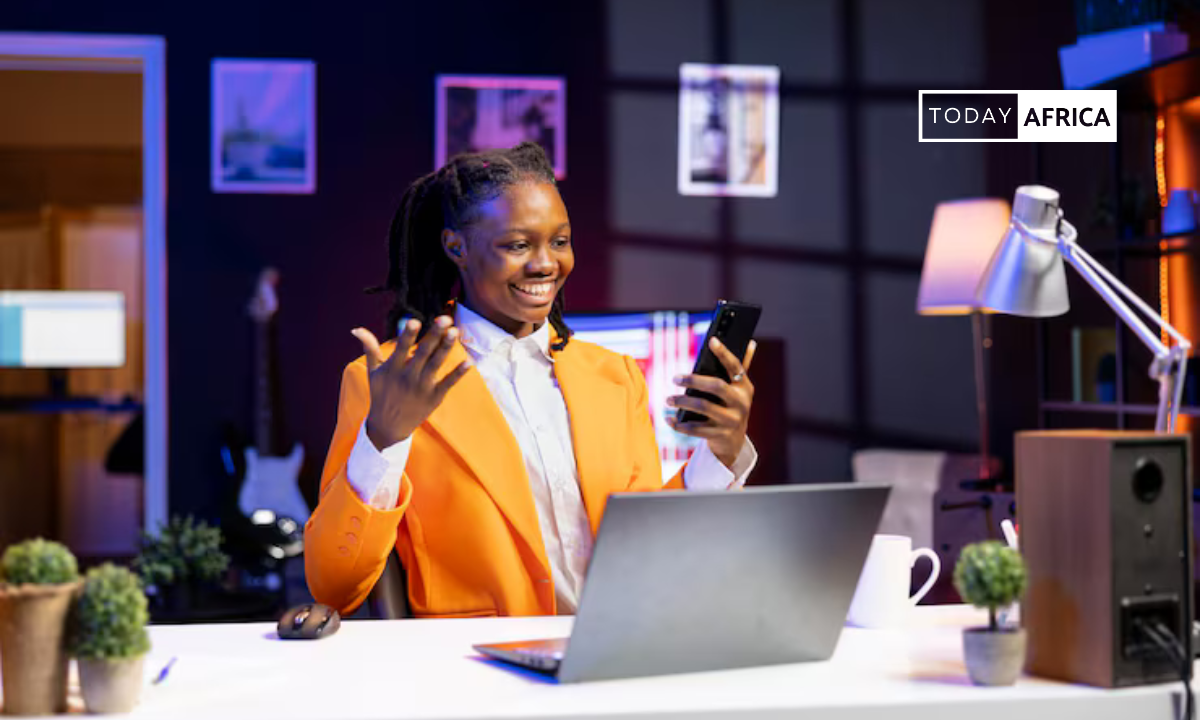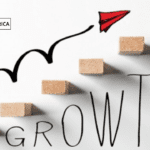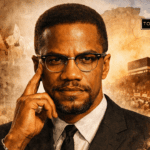Nomsa Mdhluli is the founder of Tishala Communications in South Africa, a boutique Digital Marketing and Public Relations agency. She is an award-winning broadcaster who has a knack for storytelling, and translated this skill into Public Relations through her business.
In 2018, Nomsa established Tishala Communications to serve corporate clients who deserved to have their ground-breaking business ideas, innovations and successes brought to public and business attention.
Nomsa Mdhluli shared with Today Africa the story of Tishala Communications, how it began, and where they are now.
Tell us a bit about yourself
Nomsa is a storyteller by nature. I just enjoy telling stories. I’ve always done that, even as a child. And I’ve just been so fortunate that I’ve been in spaces and have had careers that have enabled me to do that.
So I am a former journalist with one of our local news stations here, which was Eyewitness News. And then I was also a journalist at the South African Broadcasting Corporation. And now I have now founded my business, which is in public relations and digital marketing.
That has given me just another platform in which I can tell empowering stories on behalf of my clients who are really doing amazing work out there. Also I lecture journalism part-time as well at the University of Johannesburg. I’m also inspiring and teaching a new generation of storytellers as well. So that’s just a bit about me.
And Tishala Communications is really quite a unique public relations and digital marketing agency. We are also award winning as well. So what has attracted a lot of clients and the people that we’ve worked with in the past is just the way that we are able to find those very interesting gems in what our clients do and the way in which we communicate them.
And I also think what makes this unique is just our deep understanding of the media landscape and where to reach our clients’ audience as well.
What’s the inspiration behind leaving your job and starting all over again to build a brand?
You know what, for me, my story of entrepreneurship is quite unique because entrepreneurship found me. I had no desire to be a business person. All I wanted to do was be a news reporter and a news reader, right?

So it just so happened that during my time spent in Cape Town, I connected with a lady who ran a PR agency and she asked me to just freelance for them. There was a particular project that they were working on, which is the International Cape Town Jazz Festival. So I freelance for them and I enjoyed it very much.
But for me, it was just a one-time thing. So after that project lapsed, as I continued with my life, I just found people calling me and asking me to help them on PR projects. They just kept coming. So at some point I decided to register the company, which was in 2018.
Because I was working full time so I just specialized in events PR. Also, there was no conflict of interest in terms of my work as a journalist as well, because that was very important that I remain ethical. So, those will just be two, three month campaigns that come and go because I was working full time.
And what was so interesting is that around 2018 to 2019, we then started working on a tech kind of an event. And there it exposed me to a whole new variety of clients, more especially in the tech and artificial intelligence space.
Because that network grew when COVID hit, and we were dependent on technology. Those were actually the companies that were doing well. So they needed public relations. I got busier than most people, which I’m very grateful for.
And then around 2021, the company really grew and I got a business partner involved. His name is Roy Bannister. And then he came on as the business development manager. And Roy was actually a former client as well. About last year, I then decided to take the leap of faith to launch fully.
Because I saw a lot of potential in the business. I saw a lot of confidence that our client had entrusted us with in terms of what we were offering. So I decided to leave my full-time employment to focus on the business.

And when I tell you that this has been one of the most rewarding decisions in my life, it has just been a very rewarding journey. Yeah, so this is, I describe myself as an accidental entrepreneur.
Can you describe the process of launching your business into the market?
We’ve been fortunate that the government has actually listened to small businesses’ cries in terms of registering a business. Because in the past I would see complaints that it used to take months.
But now we are at a phase where you can register your company through the bank, which is what I did, or you can register your company through the CIPC, and it literally took a week.
So I registered my company with a bank which also assisted me to also open a business account. It literally took a week. So the process has become quite easy as the years progressed.
Read Also: How Emmanuel Jacobs is Building Africa’s Largest Indigenous B2B Fashion Ecommerce
What were the challenges that you faced when you started and how did you overcome them?
Getting clients was not a problem because we’re doing such a good job. A lot of people would refer clients to us. What was very challenging for us was pricing our services correctly. In the beginning, we really made a lot of mistakes in terms of undercharging. And that means that you put in a lot of work, you have these expertise, but you’re not charging correctly.
So, you end up putting in more energy and you’re not making quite a profit. That was the challenge in the beginning. And then also, working with the right clients as well and determining that because while people also kind of suss out and they order service providers.
We also had to learn that we need to audit the kind of people that we work with because public relations is a very intimate service of offering. Your clients entrust you with a lot of information and you just need to ensure that you work with the right people.
People who also share the same values that you do. Because public relations is not only about cleaning up a mess, we are also bound by the ethics of our profession as well. You need to ensure that you are working with ethical businesses who share the same values that you do.
And so those were the kind of challenges and mistakes we had to maneuver through in the past. And sometimes we had to kind of also learn trial and error as well. But we’ve come a long way.
What’s your business model and how does your brand generate revenue?

We offer PR services and digital marketing services as well, but PR services are our core offering. So what we do is that we have clients on retainer because at least we’ve been in the field since 2018. When we bring clients on board, we are able to show them what we can deliver and what we have delivered for previous clients.
So through that, then we are actually able to get them to commit to a longer contract, which is more sustainable than your short-term contracts as well. Also what you also need to consider and what we’ve also had to learn is that you also need to service clients who are sustainable as well.
Because a business can only be sustained through sustainable clients. It will hamper businesses’ operation and just the longevity of a business if you deal with people or if you deal also with industries.
There are those industries that are high risk, where you kind of struggle to get paid at the end of the month as well. So we’ve had to learn that there are a lot of those sectors that are high risk, which we no longer service.
It’s all about auditing the clients that you do, getting the right clients on board as well, and also servicing and right. What I’ve also found that helps is convincing the client to commit to a longer contract as opposed to the short-term ones.
Since you launched Tishalla Communications, what are those strategies that you have used in attracting and retaining your customers?
What we’ve done in the past, and we have been lucky, is that in the past 90% of the clients that have come on board had been through referrals. So what I always say to people is if you serve a customer and you give them a great experience and you give them their money’s worth, then they will refer other people to you.
For me, that’s the best way of marketing your business. That’s the best PR you can give your business because people will always refer good work to others. So that has worked. But then we also realize that we can’t be dependent on that.
One of the things that I decided to do is to have a business partner who concentrates on business developments. So we do a lot of networking. There are also a lot of websites where people also look for PR services.
So those are normally great companies. It’s websites such as Shortlist which give you a lead into potential clients. It is a paid service, but we’ve managed to actually get a lot of clients from there as well.
What is your approach to hiring and building your team?
For me, it’s been through networks. I’ve hired people through the networks that I have because it’s also easy if somebody has had an experience with somebody, it’s very easy. You know what to expect, you know that this person is ethical, that they are a hard worker.

So that has been an approach we have. Hardly advertised positions, but we do get people through our networks. What I also like, and this is also something that I practiced when I was looking for employment in the past. I love people who take initiative.
People who will send you an email and say, hi, I’m a job seeker, I’m looking for this. Those are really people that really touch my heart because even though they don’t see any positions that are being advertised, they’re taking the initiative to actually seek out and see if there are any opportunities, and that’s how we’ve been able to find the right people or not.
Another decision that I’ve taken, or my business partner and I have also taken is that you are having a lot of talented people that have been closed out of the job market through COVID. Also what I do is that we hire people who are currently not in the job market.
And people who are unemployed, it does not mean that they are less talented. We’ve gone through a lot of economic turmoil. And I think when we talk about the issue of unemployment, it’s also very important for us as small businesses to actually also play our role in curbing that.
And instead of just recycling people who are in the job market. One thing that I’m kind of straightforward about is that I would give first preference to somebody who’s out of the job market with the right experience.
Read Also: Meet Noëlla Coursaris Musunka Changing Lives & Communities in the Democratic Republic of the Congo
How do you stay motivated and inspired even in the face of setbacks and failures?
I believe that anyone, whether you’re a leader or whatever, you need to live a life that is holistic, right? So you need to take care of your entire being, just for you to maintain a healthy life mindset, if I can put it that way.
For me, spirituality plays a very big role. That is a very integral part of my life. I also try to take care of my health as well, because that’s important. And another thing that has actually also helped me is plugging in with other entrepreneurs as well.
Because sometimes you might be sitting in your little corner and thinking that what you’re going through is unique and all of that. But actually, if you network and you have this network with other entrepreneurs, then you are able to learn that the problems are not unique.
But most importantly, you are also able to learn how to navigate through those problems as well through their experience. Also the fact that I work with a phenomenal business partner, I’ve got phenomenal team members. That just keeps me going and phenomenal clients as well. So those are the things that really, really keep me going.

You have been an entrepreneur for some years so what are some key lessons that you have learned in your journey as an entrepreneur?
Generally, get your tax in order. I don’t know in Nigeria, but those things can either make you or break you, right? The administration of a business, more especially the financial affairs are very important.
I had to learn the hard lesson, but I must say now I’m a good student. So ensure that your financial affairs, that you really comply with the laws of the country in terms of running a business and the things that are there, pay the tax man.
Secondly, what I’ve also had to learn is the sustainability of a business, especially small business owners, we’ve got to learn that business money is not yours, it belongs to the business, right? In order to build a sustainable business, that’s how you need to look at it.
And what we’re doing now is drawing salaries, like we are paying our employees, we pay ourselves as well. And there is money that remains to run the businesses. So the economic and the administration affairs of a business was a hard lesson for me, but these can really make or break a business.
What’s your future plan for Tishala Communications?
Another very interesting thing is that we’re in a very unique position with a lot of international clients, when they want to launch on the continent. We are the go-to PR agencies. We’ve got, we’ve worked with clients in the UK. We are currently working with an international client called Samsa and they actually appointed us as a company to support their sales team.
And what we’ve managed to achieve within the first quarter of working with them is we actually managed to dominate their share of voice against their competitors from a zero base. So we actually want to establish ourselves even more and to entrench ourselves as the PR company for those brands that want to launch on the continent.
Because even though we are a South African company, we consider ourselves as an African brand, even though our name is a Swahili name and Swahili is not spoken in South Africa. Another plan that we have is to just be a one-stop shop media house where we can offer services, digital marketing, PR, podcasting services, just all forms of storytelling or those platforms that we can offer as a company.
So it’s just to broaden our services, launch ourselves more into the digital space in terms of the offering as well, and just be a full media house where our clients can get all the needs that they need from an agency.
How do you see the impact of AI in your industry and how is your brand, Tishala Communications positioned to stay ahead of the trend or ahead of the curve?
I think some people are intimidated by AI. I will always be a believer in the human touch. So nothing can ever replace the human touch, the human mind. But what I found that AI has really done is that it’s really saved time and that has enhanced our work.

Sometimes you’d spend a week doing client proposals. But with AI and with the right prompting and you would come up with the original ideas, but with the right prompting and all of that, you are able to formulate this thing in a matter of minutes. So I just how it really enhanced and saved time because when you have more time, you also have more time to service your clients as well.
I consider AI a team member. And a lot of the times we sit and we brainstorm ideas together. But it is artificial intelligence that is able to help you with ideas for certain campaigns that obviously you can put the human touch to and enhance.
It’s really something to embrace. But obviously AI gathers information from different platforms. So the ideas sometimes are not unique. And that’s why I said uniqueness and fresh ideas can only come from a human being.
For me, it’s been a great blessing and I’m forever on the lookout to see how it can really help us to be better communicators, and how it can help us to enhance our work. But definitely it’s something that cannot replace our innate creativity, if I can put it that way.
Read Also: How to Build a Purpose Driven Business – Sylvia Wambui
What’s your key advice to others, to other women who are just starting out their business?
Be brave. Be very brave and be confident. To be honest, it took me a while to recognize myself as an entrepreneur, because I did not believe in myself. I think I’m at a point now where I’m embracing it and walking in it.
And I think sometimes it really helps to have a business partner who’s a male as well. Because what I have found with males, it might be the way society has normalized us. I found a lot of males, business people quite confident even in determining the worth of their services which was something that was very hard for me in the past, although I knew I was very good at what I did. And I was very experienced.
To say I am worth this much, to say that there are certain amounts that I will not get out of bed for, it took quite a while for me to say, this is how much I will take and nothing lower than that. So just recognizing your worth has been very important.
And it’s also great that you are mentioning this. I think it’s also this nurturing woman thing. You just wanted to see everybody win. You just wanted to take each and every client. But I had to realize that in order to run a sustainable business, not everybody’s for us.

It’s so funny that this morning I was thinking of my student days where my flatmate and I, a very good friend. We would walk into this clothing store that students went into because we could not afford certain stores. But we said to ourselves, let’s work hard so that we aspire to shop at these stores.
And I feel that I want to be a business that people aspire to work with. That’s the kind of business that I want to build. I have realized that with the kind of talent that I have and the team that I have and the expertise that I have that not everybody can afford to be serviced by us.
But there are people who can aspire to be serviced by us. And that’s the kind of business that I want to be. And it took a long time. This was solely because I was a woman and the way we’ve been brought up, to be humble, to be all of this. But I don’t know if you’ve read the book that nice girls don’t get the corner office. So I have had to make such hard decisions and build my business.
So this is the advice that I can give to ladies: be bold, be brave, believe in yourself, know your worth, and also just respect your decisions as well. If you say, this is not what I’m worth, then learn to say no and learn to say no confidently and you can’t please everyone. You can’t be everything to everyone. That’s something that I’ve had to learn.
Click here to read the rest of the interview with Nomsa Mdhluli.
To find out more, contact Nomsa Mdhluli via:
Leave a comment below and follow us on social media for update:
- Facebook: Today Africa
- Instagram: Today Africa
- Twitter: Today Africa
- LinkedIn: Today Africa
- YouTube: Today Africa Studio






![How Does Temu App Work? [Full Guide]](https://todayafrica.co/wp-content/uploads/2024/12/Blog-Image-1200-×-720-px-16-872x547.avif)









